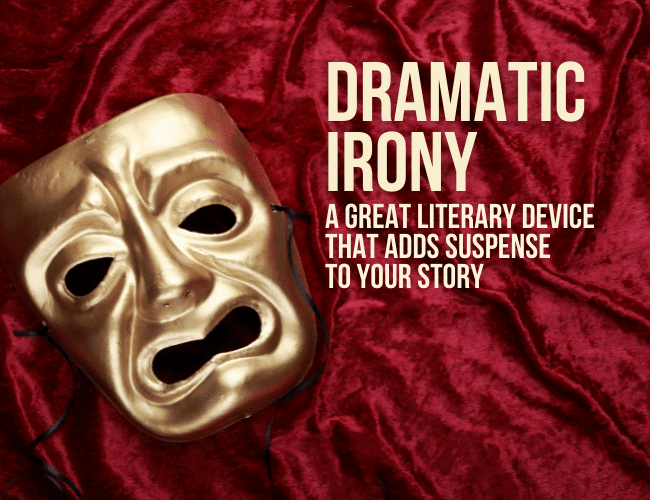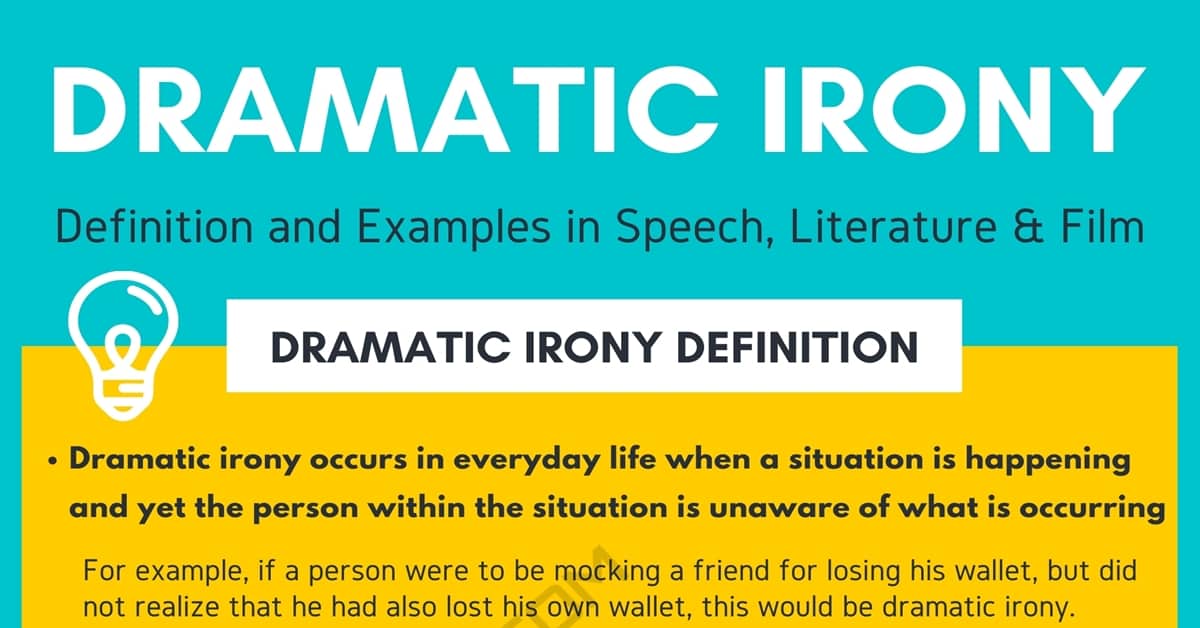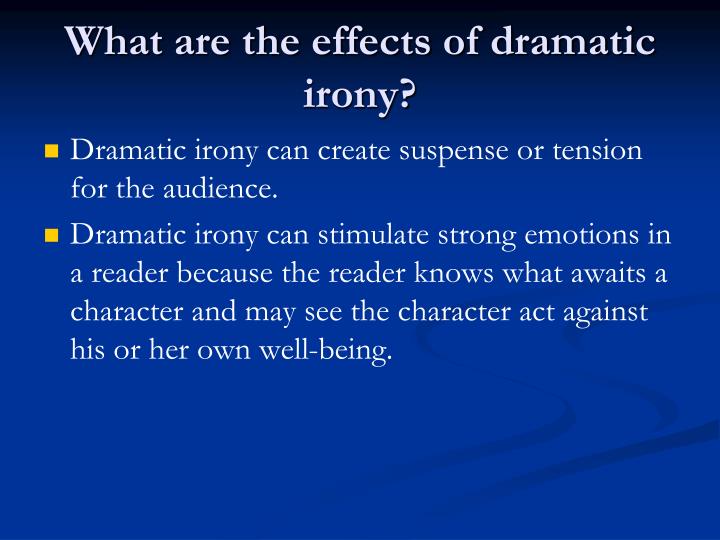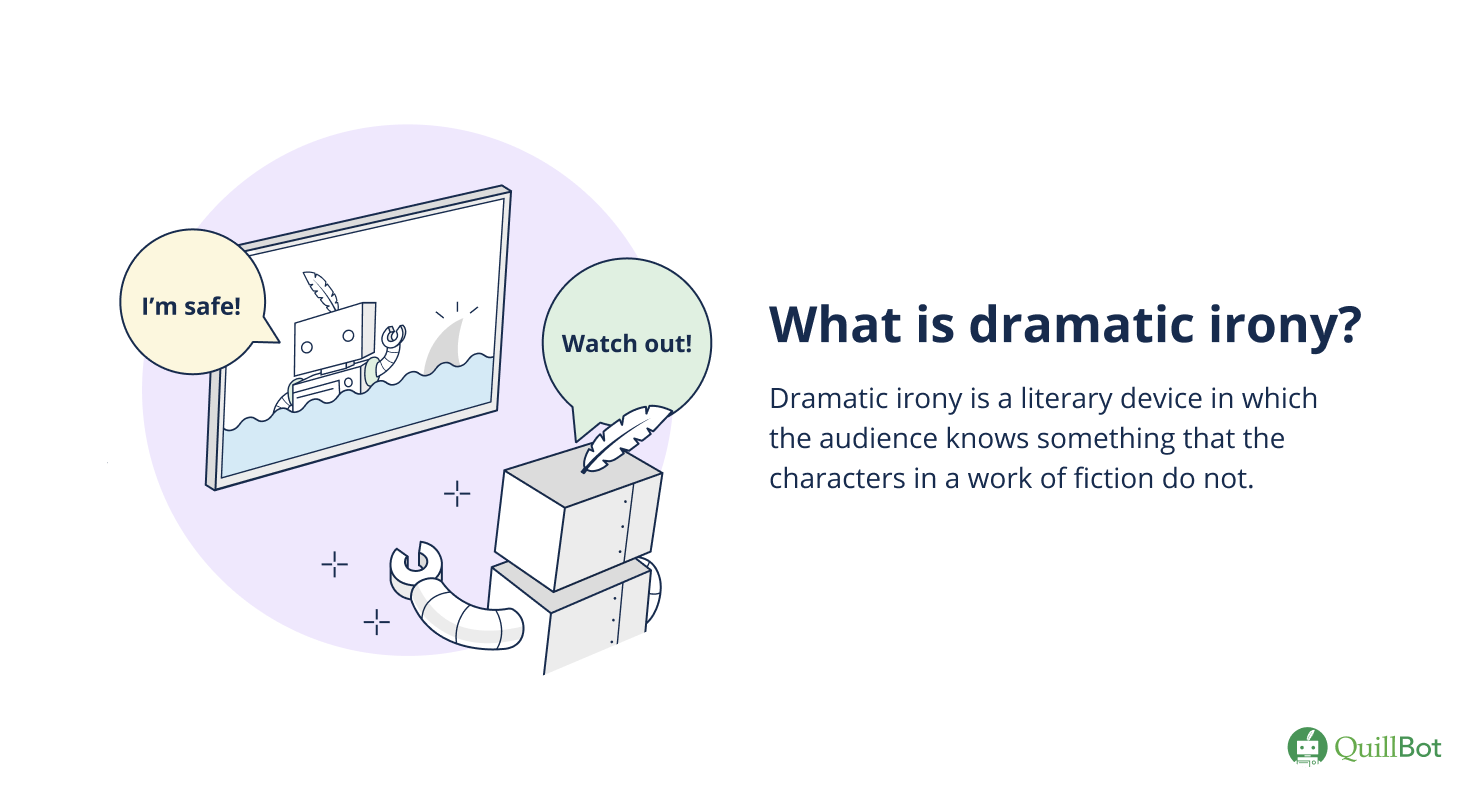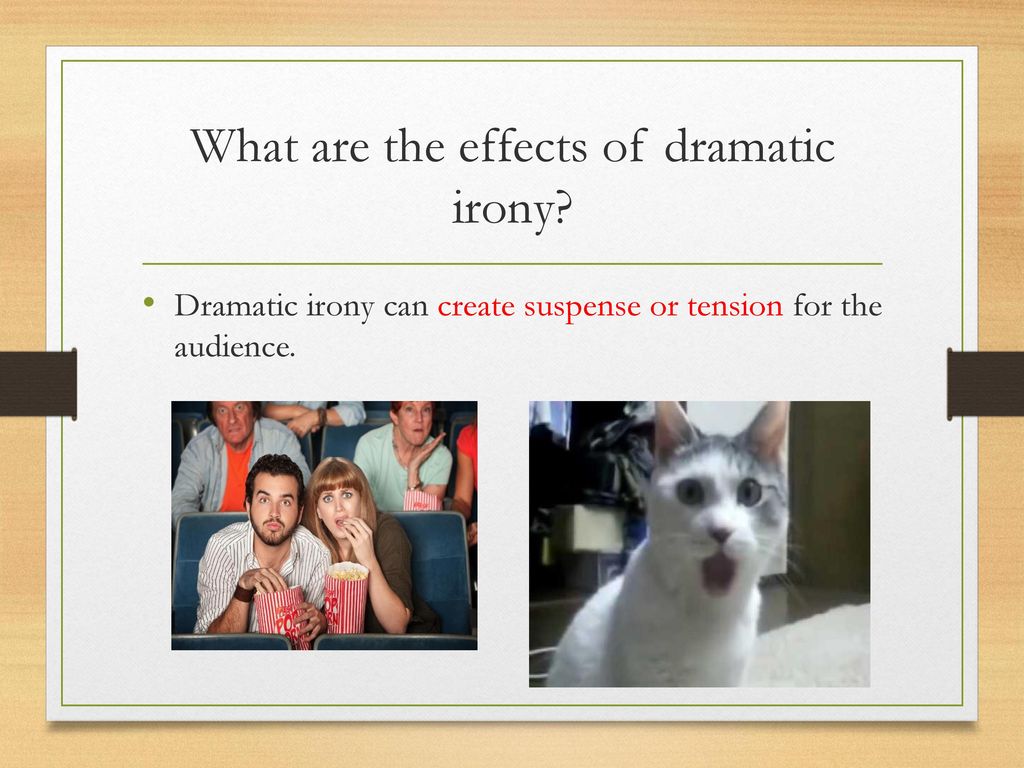How Does Dramatic Irony Create Suspense - How does dramatic irony work? It can create suspense or sharpen a story's emotional appeal, but it can also lead to. Dramatic irony is a great way to add suspense to your story by giving information to readers that characters don't have. In the preparation stage, the audience receives information some of the characters don’t have. Learn all about this literary technique in this article. Structurally, it is an excellent tool in both tragedy and comedy: When the audience knows more than the characters, it forces them to anticipate and fear the moment, and to hope that the character. There are three stages of dramatic irony: The immediate and clear example of dramatic irony is in every horror. Dramatic irony can serve a wide variety of purposes.
Dramatic irony can serve a wide variety of purposes. It can create suspense or sharpen a story's emotional appeal, but it can also lead to. When the audience knows more than the characters, it forces them to anticipate and fear the moment, and to hope that the character. How does dramatic irony work? Why do writers use dramatic irony? In the preparation stage, the audience receives information some of the characters don’t have. Learn all about this literary technique in this article. The immediate and clear example of dramatic irony is in every horror. Dramatic irony is a great way to add suspense to your story by giving information to readers that characters don't have. Writers use dramatic irony as a plot device to create conflict, suspense, empathy, and humour.
When the audience knows more than the characters, it forces them to anticipate and fear the moment, and to hope that the character. There are three stages of dramatic irony: Dramatic irony can serve a wide variety of purposes. Dramatic irony is a great way to add suspense to your story by giving information to readers that characters don't have. Structurally, it is an excellent tool in both tragedy and comedy: In the preparation stage, the audience receives information some of the characters don’t have. Why do writers use dramatic irony? Learn all about this literary technique in this article. Writers use dramatic irony as a plot device to create conflict, suspense, empathy, and humour. It can create suspense or sharpen a story's emotional appeal, but it can also lead to.
Exploring Drama and Dramatic Irony
In the preparation stage, the audience receives information some of the characters don’t have. How does dramatic irony work? Dramatic irony can serve a wide variety of purposes. There are three stages of dramatic irony: Structurally, it is an excellent tool in both tragedy and comedy:
Dramatic Irony A Great Literary Device That Adds Suspense to Your Story
In the preparation stage, the audience receives information some of the characters don’t have. There are three stages of dramatic irony: It can create suspense or sharpen a story's emotional appeal, but it can also lead to. How does dramatic irony work? The immediate and clear example of dramatic irony is in every horror.
What Is Dramatic Irony? Definition, Examples & How To Use It
There are three stages of dramatic irony: Why do writers use dramatic irony? The immediate and clear example of dramatic irony is in every horror. When the audience knows more than the characters, it forces them to anticipate and fear the moment, and to hope that the character. Writers use dramatic irony as a plot device to create conflict, suspense,.
What Is Dramatic Irony? Definition, Examples & How To Use It
How does dramatic irony work? There are three stages of dramatic irony: Dramatic irony is a great way to add suspense to your story by giving information to readers that characters don't have. Writers use dramatic irony as a plot device to create conflict, suspense, empathy, and humour. When the audience knows more than the characters, it forces them to.
How to Use Suspense, Mystery, & Dramatic Irony (Writing Advice) YouTube
In the preparation stage, the audience receives information some of the characters don’t have. It can create suspense or sharpen a story's emotional appeal, but it can also lead to. Dramatic irony is a great way to add suspense to your story by giving information to readers that characters don't have. Structurally, it is an excellent tool in both tragedy.
🌈 Dramatic irony literary term. Dramatic Irony A Great Literary Device
Structurally, it is an excellent tool in both tragedy and comedy: The immediate and clear example of dramatic irony is in every horror. Dramatic irony is a great way to add suspense to your story by giving information to readers that characters don't have. Why do writers use dramatic irony? Dramatic irony can serve a wide variety of purposes.
Solved How does Ibsen use dramatic irony to heighten suspense in this
It can create suspense or sharpen a story's emotional appeal, but it can also lead to. Learn all about this literary technique in this article. The immediate and clear example of dramatic irony is in every horror. In the preparation stage, the audience receives information some of the characters don’t have. When the audience knows more than the characters, it.
PPT Irony Verbal, Situational, and Dramatic PowerPoint Presentation
Dramatic irony is a great way to add suspense to your story by giving information to readers that characters don't have. When the audience knows more than the characters, it forces them to anticipate and fear the moment, and to hope that the character. Structurally, it is an excellent tool in both tragedy and comedy: How does dramatic irony work?.
What Is Dramatic Irony? Definition & Examples
Learn all about this literary technique in this article. Structurally, it is an excellent tool in both tragedy and comedy: Dramatic irony is a great way to add suspense to your story by giving information to readers that characters don't have. It can create suspense or sharpen a story's emotional appeal, but it can also lead to. Writers use dramatic.
Irony Verbal, Situational, and Dramatic ppt download
Structurally, it is an excellent tool in both tragedy and comedy: How does dramatic irony work? Writers use dramatic irony as a plot device to create conflict, suspense, empathy, and humour. It can create suspense or sharpen a story's emotional appeal, but it can also lead to. Dramatic irony is a great way to add suspense to your story by.
When The Audience Knows More Than The Characters, It Forces Them To Anticipate And Fear The Moment, And To Hope That The Character.
The immediate and clear example of dramatic irony is in every horror. Learn all about this literary technique in this article. Structurally, it is an excellent tool in both tragedy and comedy: It can create suspense or sharpen a story's emotional appeal, but it can also lead to.
In The Preparation Stage, The Audience Receives Information Some Of The Characters Don’t Have.
Writers use dramatic irony as a plot device to create conflict, suspense, empathy, and humour. Dramatic irony can serve a wide variety of purposes. Why do writers use dramatic irony? How does dramatic irony work?
There Are Three Stages Of Dramatic Irony:
Dramatic irony is a great way to add suspense to your story by giving information to readers that characters don't have.

